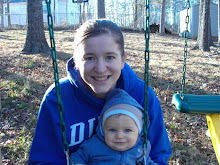My husband, a fellow writer, told me recently that he doesn't understand the importance of staying current with agent and editor blogs. He does, however, check his favorite political, news, and sports websites/blogs more than once each day. While I have tried to share with him my thoughts, I am thankful that literary agent Jessica Faust at BookEnds has put in her two (more credible) cents on
why publishing blogs are important for authors to read. Here is a summary of what I consider to be the top five reasons:
- Many writers do not understand the industry. Agent/editor blogs are tremendous resources for new authors just stepping into the publishing world. Everything a writer needs to know on how to be published is waiting to be accessed (see my post 'Do you know what you don't know?').
- Beginning writers can and do receive inaccurate (and often down-right bad) information from well-meaning-but-poorly-informed fellow writers on social networking sites or from self/subsidy-publishing companies attempting to lure authors to their 'services' by portraying themselves as traditional publishers (realize that all of their 'information' represent a conflict of interest). Any advice a writer receives should be checked against what successful people in the industry say (i.e., credible agents and editors). In addition, before proceeding with an agency or publisher, authors should research it on Preditors & Editors and Writer Beware.
- Writers can see into the mind of an agent or editor and perhaps discover what he or she is looking for in a query or manuscript. Let's face it, in this industry it is a challenge to get published. The burden is on you, the writer, to prove your worth to the agent/editor. Why not give yourself all the edge you can--by researching the agent, reading his blog, and following his query advice?
- Agent/editor blogs are a great place to network with said agents/editors and their readers (fellow writers). If you find a blog posting particularly helpful, leave a comment. If you have a question, leave a comment, then check back for the answer. Better yet, read other's comments and be a part of the already existing dialogue. Learn from your peers who are just as committed as you.
- Other writers are asking the same questions and the answers can often be found by regularly following the publishing blogs or by searching the blogs. [As an example of #5, how many of you children's book writers have wondered how to get your book to be included in the Scholastic Book Clubs? If I didn't subscribe to Editorial Anonymous' blog, I would have missed this valuable information.]
For those of you interested in blogging, I highly recommend beginning with
Editorial Anonymous and
Nathan Bransford, although all of the agent/editor blogs listed on the right of my page are worthwild. Each of the blogs also links to other publishing blogs. As your blog reading grows, you will find which bloggers suit your taste. Just make sure they are credible before you bank on their information.
Remember, even if you have a full-time job, if you are pursuing publication for your manuscript, agents and editors are going to expect that you treat writing as your career (and rightfully so). They want to know that you have taken the time to understand the industry, even before you are a part of it. It shows them they can expect you to put the same hardwork and initiative into editing your manuscipt and promoting your book once it is in print. It does require a sacrifice of your time, but one that I have found very rewarding. One final word of caution: do not go off the deep end and spend so much time blogging that you sacrifice the time that should be spent honing your craft. Balance is key.
UPDATE (03/16/09): Literary agent, Jennifer Jackson, also chimed in on this topic. See her regular blog series 'Letters from the Query Wars' on
the importance of doing your homework. Also, published author Justine Larbalestier offered her experience on
why writers need to know and follow agents' individual rules and submission requirements, which are usually posted on agents' websites and blogs.
UPDATE (03/28/09): The Guide to Literary Agents Editor's Blog posted their
Top 5 Agent Blogs to Follow. I have to admit, they chose well. I personally follow four of the five blogs and the fifth I have visited from time to time. If you are looking for a place to start, here it is!
Also, when you feel confident enough to contribute to the literary dialogue on the agent/editor blogs, Grammar Girl has some excellent advice on
how to write a great blog comment--definitely a must read post.



